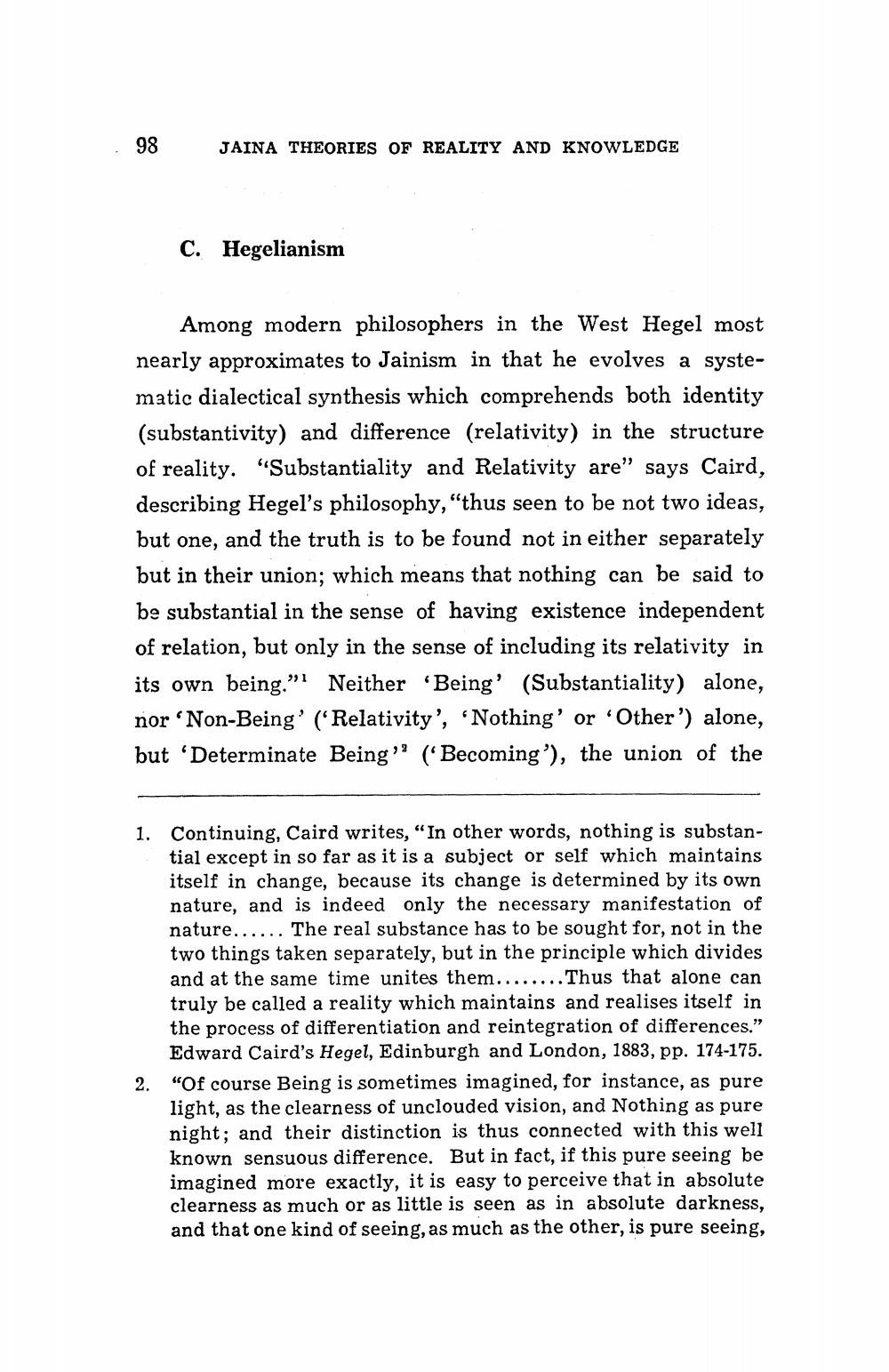________________
98
JAINA THEORIES OF REALITY AND KNOWLEDGE
C. Hegelianism
Among modern philosophers in the West Hegel most nearly approximates to Jainism in that he evolves a systematic dialectical synthesis which comprehends both identity (substantivity) and difference (relativity) in the structure of reality. "Substantiality and Relativity are" says Caird, describing Hegel's philosophy, "thus seen to be not two ideas, but one, and the truth is to be found not in either separately but in their union; which means that nothing can be said to be substantial in the sense of having existence independent of relation, but only in the sense of including its relativity in
25 1
its own being." Neither 'Being' (Substantiality) alone, nor 'Non-Being' ('Relativity', 'Nothing' or 'Other') alone, but 'Determinate Being" ('Becoming'), the union of the
1. Continuing, Caird writes, "In other words, nothing is substantial except in so far as it is a subject or self which maintains itself in change, because its change is determined by its own. nature, and is indeed only the necessary manifestation of nature...... The real substance has to be sought for, not in the two things taken separately, but in the principle which divides and at the same time unites them........ Thus that alone can truly be called a reality which maintains and realises itself in the process of differentiation and reintegration of differences." Edward Caird's Hegel, Edinburgh and London, 1883, pp. 174-175.
2. "Of course Being is sometimes imagined, for instance, as pure light, as the clearness of unclouded vision, and Nothing as pure night; and their distinction is thus connected with this well known sensuous difference. But in fact, if this pure seeing be imagined more exactly, it is easy to perceive that in absolute clearness as much or as little is seen as in absolute darkness, and that one kind of seeing, as much as the other, is pure seeing,




